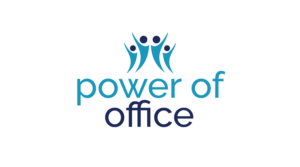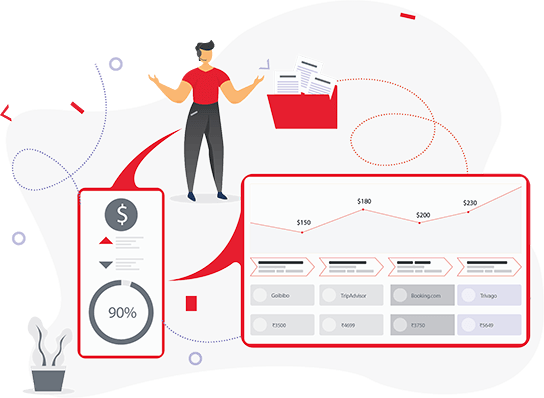When it comes to the competitive digital landscape today, the hotel sector struggles with overcoming various challenges that collectively impact attracting prospective guests as well as converting bookings. Best channel management software is the key to successful hotel business operations. But what really is channel management and why does it matter for hotels? The process of supervising and managing the several distribution channels that a hotel uses to market its accommodations as well as services is known as “channel management.” The five main reasons that channel management is essential for hotels of all sizes will be discussed in this essay.
1. Increased Visibility and Reach
In the era of digital technology, visibility is crucial. Hotels must have a presence on several internet platforms in order to be found when prospective visitors are searching. By using effective channel management, hotels may reach more potential customers and make themselves more visible to them.
Hotels may reach a variety of market groups as well as draw in a wide range of passengers by employing a variety of distribution methods. This means that where pleasure tourists may choose to book through the hotel’s direct website or through Online Travel Agencies (OTAs), business travelers may opt to use a Global Distribution System (GDS). Channel management ensures that your property is being posted consistently in all these mediums so as to increase the chance of it being viewed by potential visitors.
Additionally, channel management software frequently includes information about the channels that work well for a specific hotel. With the help of this insightful data, hotels can concentrate their efforts on the most productive platforms, increasing their visibility where it counts most. Hotels may greatly improve their prospects of drawing visitors as well as remaining one step ahead of the competition by keeping a strong presence across a variety of channels.
2. Revenue Optimization
The capacity of efficient channel management to maximize hotel income is among its most important advantages. Hotels can apply dynamic pricing techniques that modify room rates according to demand, seasonality, as well as other factors by carefully managing their distribution networks. With this flexibility, hotels may draw reservations during sluggish periods and make the most of their revenue potential during periods of strong demand.
Channel management systems offer up-to-date information on rival pricing, booking trends, as well as market conditions. Equipped with this data, lodging establishments can make knowledgeable choices regarding their pricing tactics for various platforms. For example, they might keep higher rates on their direct booking channels for devoted clients who appreciate the hotel’s brand as well as services, while offering special discounts on specific OTAs to draw in budget-conscious guests.
Effective channel management also lessens the likelihood of under- and overbooking. Hotels may prevent costly errors like turning away guests owing to overbooking or missing out on potential revenue due to underbooking by keeping precise inventory across all channels in real-time.
3. Operational Efficiency
In the fast-paced realm of hotel administration, time is an invaluable resource. Channel management excels in this situation, providing notable increases in operational effectiveness. Hotels may avoid human error as well as save countless hours of labor by automating many of the duties involved in managing numerous distribution channels.
Hotels can simultaneously update room availability, pricing, and promotional offers across all channels when they have a strong channel management system in place. This removes the need for employees to manually update information by logging into several extranet platforms, which is a laborious as well as error-prone operation. The time that is saved can be used on more worthwhile projects, including creating marketing plans or enhancing visitor services.
Furthermore, a hotel’s property management system and channel management system frequently work together flawlessly (PMS). All systems may automatically synchronize financial data, visitor information, as well as bookings thanks to this interface. Because of this, front desk employees have access to precise and current information, which facilitates easier check-ins, enhances visitor experiences, as well as improves overall operational efficiency.
4. Enhanced Guest Satisfaction
The main objective of the hotel sector is to satisfy its guests. From the time guests begin to plan their trip, efficient channel management is essential to improving their experience. Hotels may set clear expectations as well as prevent disappointments by making sure all booking channels provide uniform and accurate information.
The hotel gains the trust as well as confidence of its guests when they discover identical room descriptions, features, and policies on all platforms. Pricing is another area where this consistency is important since it avoids scenarios in which customers feel duped if they find a better deal on another channel after making a reservation. Additionally, channel management solutions frequently enable hotels to highlight their special offers as well as USPs across all channels, assisting visitors in making defensible selections..
A further method that channel management boosts visitor happiness is by streamlining the reservation process. Visitors can feel secure knowing that the rooms they view online are genuinely available for booking thanks to real-time inventory updates. This avoids the aggravation of trying to reserve a room as well as discovering it’s sold out.
5. Competitive Advantage
Having an advantage over competitors can mean the difference between success and hardship in the highly competitive hotel sector. Hotels that use effective channel management may stay ahead of the curve as well as react rapidly to changes in the market, giving them a major competitive edge.
With access to real-time data, hotels are able to track the pricing tactics of their rivals and modify their own rates accordingly. Their ability to adapt enables them to maintain their competitiveness without needlessly lowering their prices.
Furthermore, hotels may keep up a strong online presence across a variety of platforms by effectively managing several distribution channels. Regardless of how they choose to make their reservation, potential customers are more likely to find the hotel because to its improved visibility. Effective hotels can further strengthen their competitive position by utilizing their ties with OTAs and other distribution partners to gain greater ranking on search results pages.
Conclusion
In the current digitally-driven hospitality environment, efficient hotel management software management has emerged as a critical tool for hotels looking to prosper as well as expand. It is impossible to overestimate the significance of channel management in the hotel industry, as this essay has shown. The advantages are extensive as well as significant, ranging from expanding visibility as well as reach to optimizing revenue, boosting operational effectiveness, raising visitor happiness, and obtaining a competitive edge.

